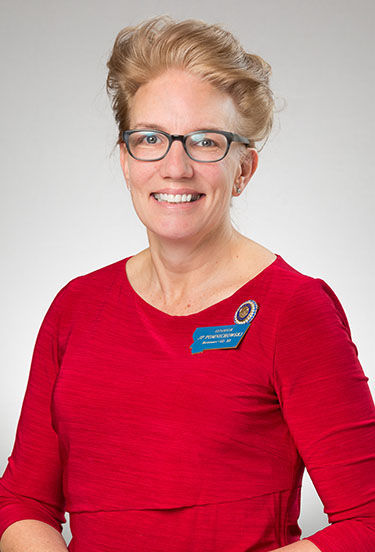
Freddy Monares can be reached at 406-582-2630, or by email at fmonares@dailychronicle.com.
https://www.bozemandailychronicle.com/news/politics/local-lawmakers-file-for-state-races/article_fdd53f95-4814-5166-8816-33d5be87fd13.html
Author: JP Pomnichowski

Freddy Monares can be reached at 406-582-2630, or by email at fmonares@dailychronicle.com.
https://www.bozemandailychronicle.com/news/politics/local-lawmakers-file-for-state-races/article_fdd53f95-4814-5166-8816-33d5be87fd13.html
A quick five-minute glimpse into this 65th Montana Legislature:
https://www.youtube.com/watch?v=qFxfnOwzhGM&feature=youtu.be
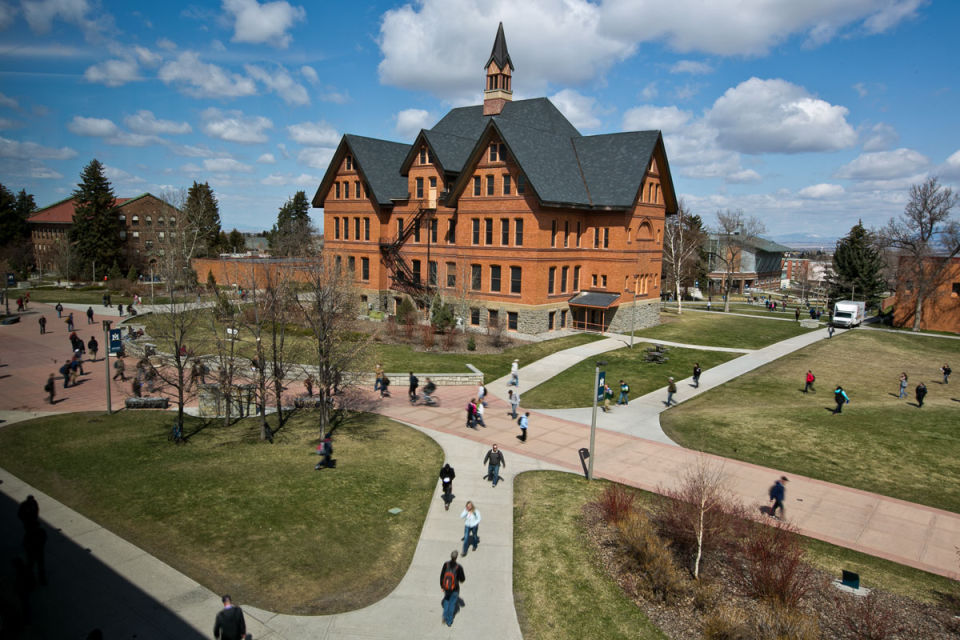
 If you, anyone in your family, any of your neighbors, co-workers, or fellow citizens have attended any of the classes on any of the campuses of the Montana University System, you’ve benefitted from the graciousness of Montana citizens who have levied upon themselves to support our university system.
If you, anyone in your family, any of your neighbors, co-workers, or fellow citizens have attended any of the classes on any of the campuses of the Montana University System, you’ve benefitted from the graciousness of Montana citizens who have levied upon themselves to support our university system.
It’s called the six-mill levy, and Montana citizens have voted it in since 1948. Every decade, the levy must be placed again on the ballot and Montana voters asked to continue their support for higher education.
The six-mill levy is cornerstone funding for higher education, paying for core operations and easing the demand for general fund dollars and tuition revenue.
Currently, the levy generates about $17 million a year, projected to generate $20 million a year by 2020 and 2021. The return on investment is impressive: our Montana University System awards more than 9,000 degrees and certificates annually, educates Montanans and students from all over the world, contributes to the knowledgeable workforce that keeps our economy growing, and offers people the knowledge on which to build successful careers.
More than 80% of Montana University System graduates are employed in Montana within one year of graduation, earning an average starting salary of $35,000.
For those of us who’ve received an the excellent education from the Montana University System, earned advanced degrees, and launched successful careers, we’ve all benefitted from earlier generations of Montanans who voted yes on the six-mill levy.
It’s our turn to pay it forward.
We’re investing in the next ten years of help to our university system, our own educated workforce, our state economy, and the local fabric of our own communities. The six-mill levy is a contribution to a stronger society.
For my part, I was the sponsor of the legislation in my first term in the legislature in 2007; Senator Bob Hawks (D-Bozeman) introduced the bill in the state senate, and I carried it in the House of Representatives.
Now, I represent Senate District 33 in Bozeman, home to Montana State University, my alma mater (Go, ‘Cats!) and I am honored to carry the legislation in this 2017 session to bring the six-mill levy to the ballot.
Please support the six-mill levy. It helps to support our Montana University System.
Women all over the United States, all over the world, reacted to the election of Donald Trump with shock for the misogyny, sexism, chauvinism, and disrespect he’s shown us.
So women all over the United States, all over the world, are marching on the capitol on Saturday, January 21.
In Helena, Montana’s capital, your Democratic Women Legislators will be among you on the capitol grounds on Saturday. Please do a one-minute sign-up: http://bit.ly/2jQlxh5 to stay in touch, get informed, and take action! More details on the march at https://www.womensmarchmontana.com
In this 65th Montana Legislature, 2/3 of the Senate Democrats are women (12 of 18 Democrats) and more than 50% (22 of 41) of the House Democratic Caucus. The House Minority Leader is a woman: Jenny Eck, and I serve in leadership, too, as one of two Democratic Whips in the Montana Senate.
You can do this, too. You can run for office, serve on a local advisory board at the city or county level, volunteer; use your expertise, your talents, and your experience!
WOMEN GET IT DONE. We get EVERYTHING done.
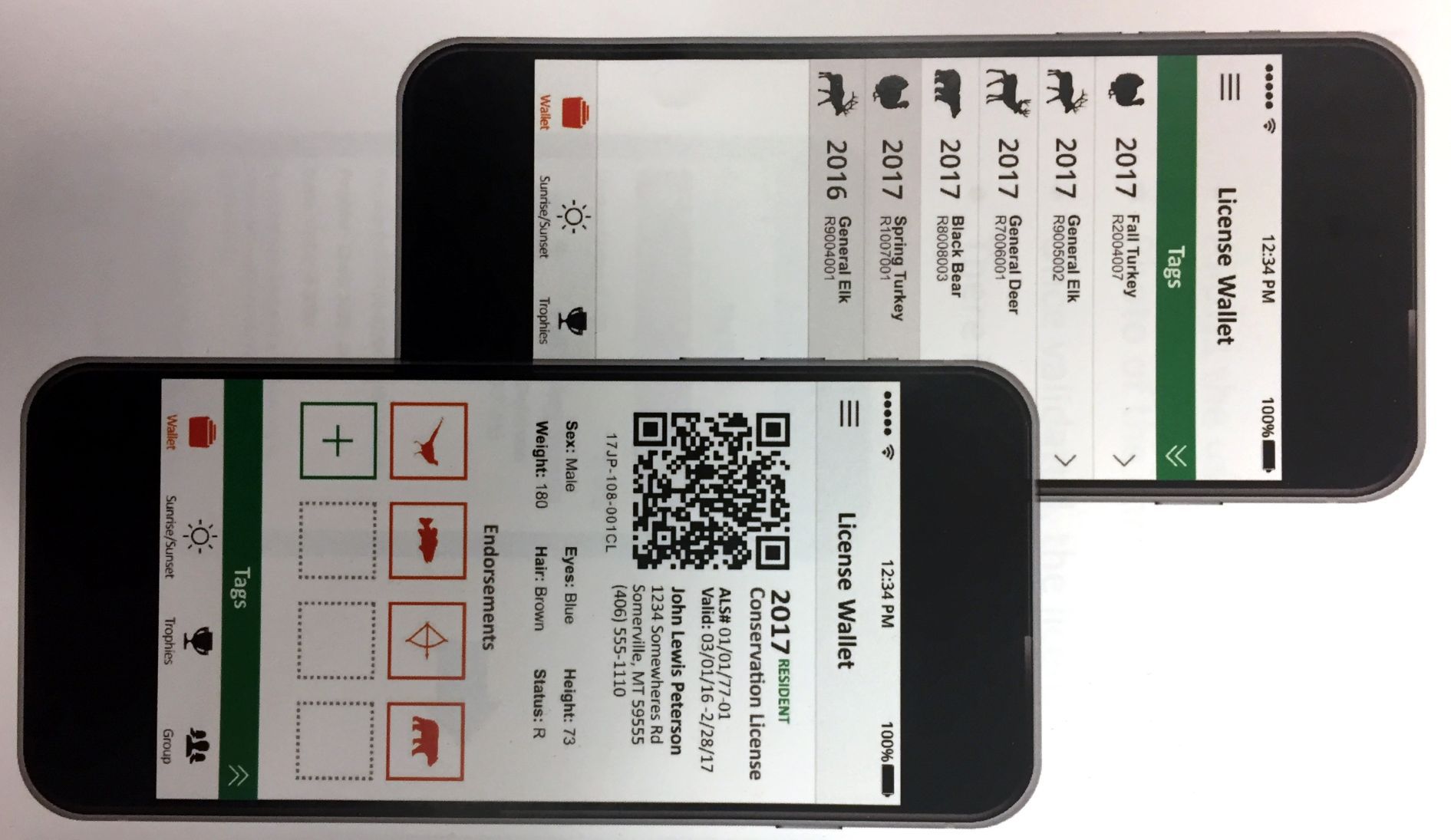
I presented my first bill of the 65th Montana Legislative Session yesterday. It’s an idea proposed by the Department of Fish, Wildlife and Parks to offer game tags electronically. A good bill, Senate Bill 50!
http://missoulian.com/news/state-and-regional/montana-legislature/fwp-backs-bill-to-allow-electronic-hunting-tags/article_83f7812f-aa7d-5069-82ea-17623f014b3c.html
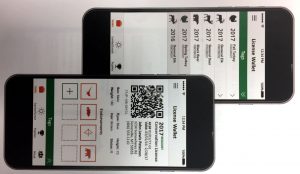
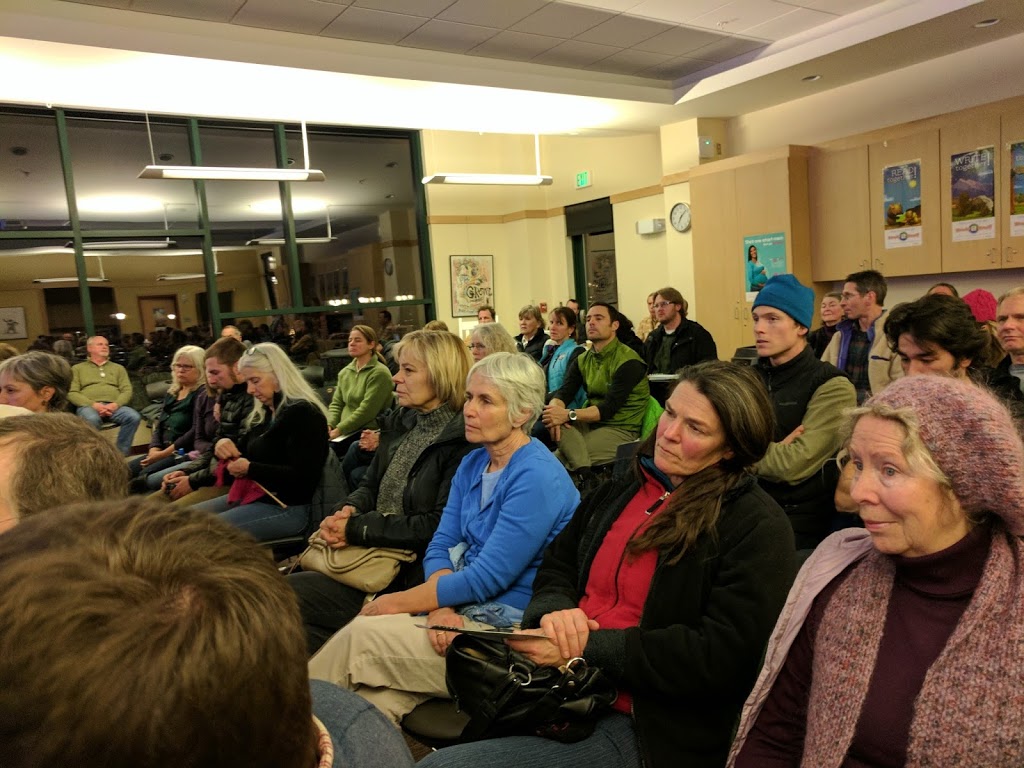
http://www.explorebigsky.com/montanans-seek-local-clean-energy-solutions-in-wake-of-trumps-election
By Amanda Eggert EBS Associate Editor
But that frustration hasnt deteriorated into despondent hand wringing in Bozeman. People are looking for ways to make a difference on these issues at a local level, as evidenced by a robust turnout for a Dec. 13 meeting about clean energy and climate change policy held at the Bozeman Public Library.
The meeting was attended by approximately 100 people and organized by Dave Dittloff, a Missoula-based representative of the National Wildlife Federation.
People want to find a constructive place to put their efforts and promote climate change policy and clean energy policy, said Dittloff, adding that he hopes to hold similar forums in Billings, Missoula, Great Falls and Helena.
Ditloff said a considerable amount of carbon reduction can occur at the city and state level and such efforts in Bozeman are laudable. In September, the city of Bozeman launched the Bozeman Solar Project near I-90 and 19th Street, designed to produce enough electricity to power approximately 54 homes. If more cities [follow Bozemans lead], we could drive the carbon emissions down drastically, he said.
Dittloff started the meeting by discussing some of Trumps cabinet picks that concern him, like Oklahoma Attorney General Scott Pruitt for administrator of the Environmental Protection Agency and former Exxon Mobil CEO Rex Tillerson for secretary of state.
Ditloff then changed the tone of the meeting by pointing out that the market favors clean energy right now. Economic trends are on our side, he said. [Solar energy] is cheaper than ever, wind is cheaper than ever, and coal isrelatively speakingmore expensive than ever.
Presentations were given by representatives from a Missoula-based renewable energy nonprofit, the Montana Department of Environmental Quality, a Bozeman-based solar contractor, the city of Bozemans Sustainability Program, and a Montana state senator.
Laura Andersen with the DEQs Energy and Pollution Prevention bureau highlighted some renewable energy projects in the works at the state level including utility-scale wind development, a nascent effort to install solar panels on public buildings, and a potential electric vehicle charging corridor between Glacier and Yellowstone national parks.
Andrew Valainis, executive director of the Montana Renewable Energy Association, said several bills are in the works that would advance efforts related to net metering, a system that allows people who produce more energy than they use to add it to the power grid. The proposed bills would incentivize and protect investment in net metering.
JP Pomnichowski, who represents Bozeman in the Montana Senate, said the state legislative process is ripe for public participation and urged constituents to be vocal about bills they dont support. Silence implies consent, she said, adding that laws that are passed in the state Legislature have a profound impact on Montanans daily lives.
I really believe that your diligence at the [state] legislative level is important, Pomnichowski told the crowd.
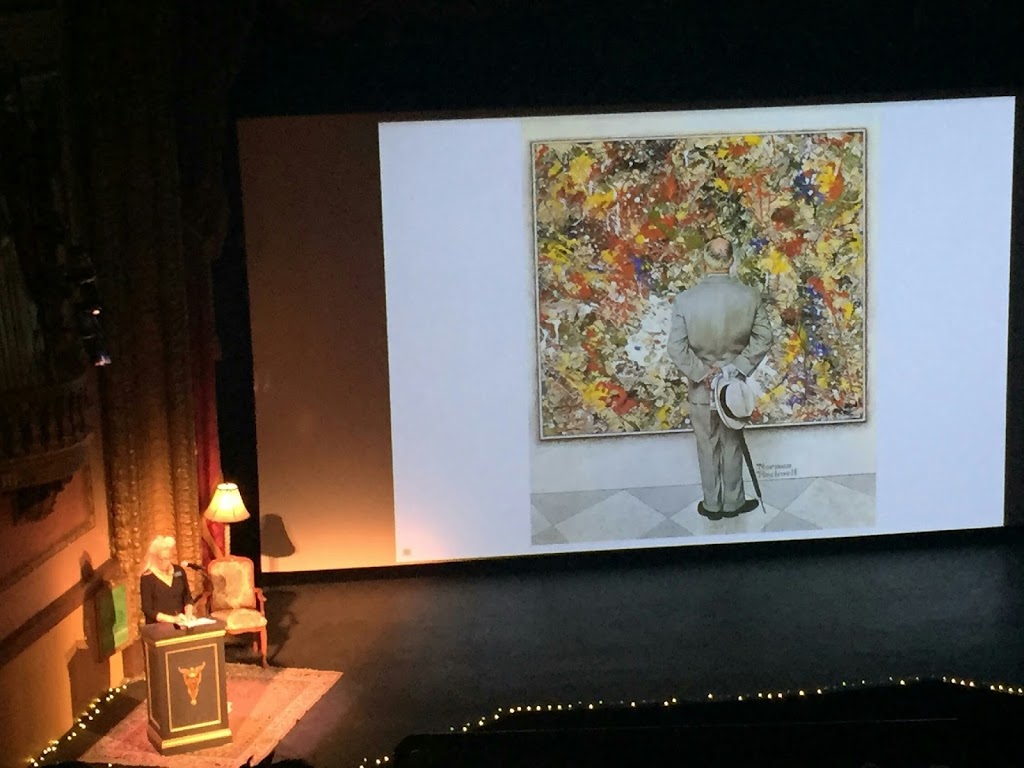
Montana has a citizen legislature. Regular citizens serve as your lawmakers, meeting for no more than 90 days every two years. Montana’s “Peoples’ Branch” is unique, and I’m very proud to serve.
To share some of the facts about our state legislative branch of government, I presented at Bozeman Pecha Kucha on Montana’s Citizen Legislature a couple weeks ago. You should see it!
https://www.youtube.com/watch?v=DTNq8OxWjNQ
Pecha Kucha is a simple presentation format that shows 20 images, each for 20 seconds, with narration from the presenter. The topics are as varied as the presenters, and I think this snapshot of Montana’s lawmaking branch gives a good outline.
Pecha Kucha has gone viral, and more than 800 cities worldwide host PK nights. I hope you enjoy this bit on the Montana Legislature, and please do attend Bozeman Pecha Kucha in the future!
https://www.youtube.com/watch?v=DTNq8OxWjNQ
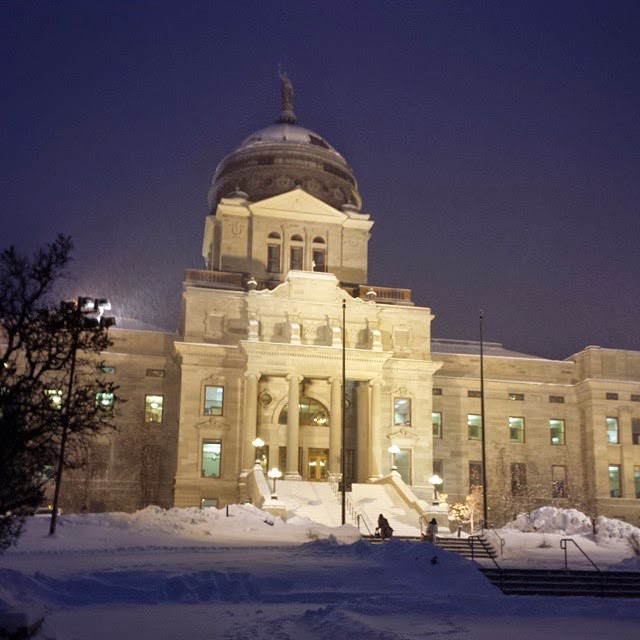
The 2015 Montana Legislature is in full swing. I owe you an update!
On Monday, January 5, senators and representatives were sworn in to office at high noon. I’m proud to represent Senate District 33, Bozeman and Gallatin County, along with friends and neighbors and Montanans in all reaches of the state!
I started the session with several bill drafts, and I’ve presented at least one bill in each of these three weeks.
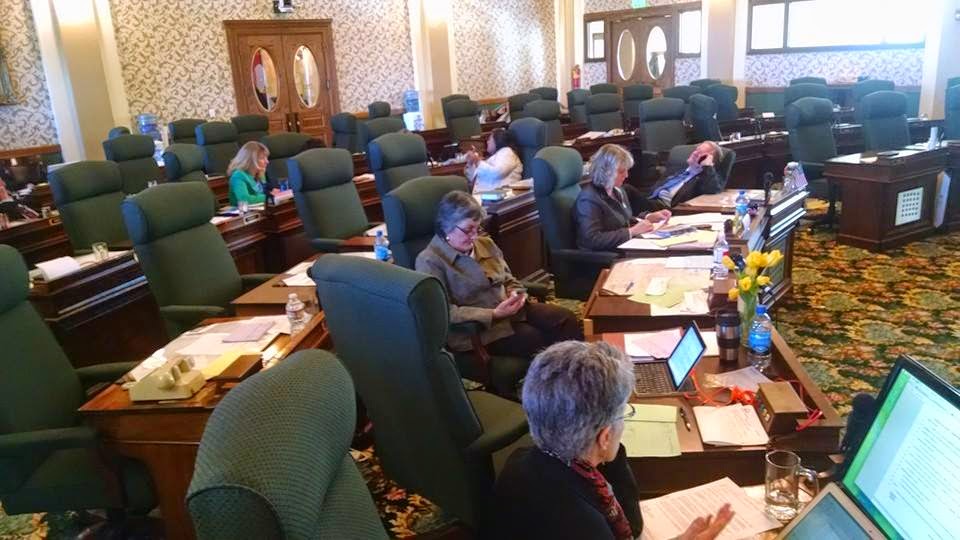 |
|
| The powerful front row of Democratic women, including my seat. |
The first bill I presented (in the first week!) was Senate Bill 46 on behalf of Montana Fish, Wildlife & Parks and Montana sportsmen and women, to allow electronic signatures on hunting, fishing, and trapping licenses so that licenses can be displayed on electronic devices. The Senate Fish and Game Committee passed the bill unanimously, then the bill passed the Senate 47-3. Next week, I present it to the House of Representatives committee. Fingers crossed it keeps progressing!
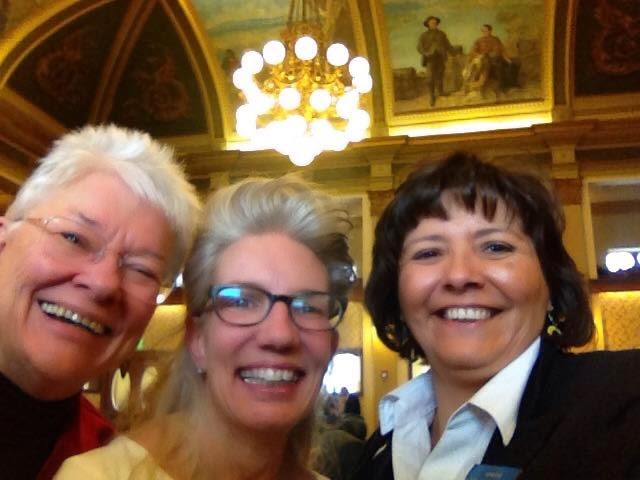 |
| Fellow senators Diane Sands and Lea Whitford at our inauguration. |
Week Two: Senate Bill 47 proposes an increase in wildland fire assessments for private forest land owners (from $45 to $50). The Senate Natural Resources Committee has the bill now, and I hope it advances.
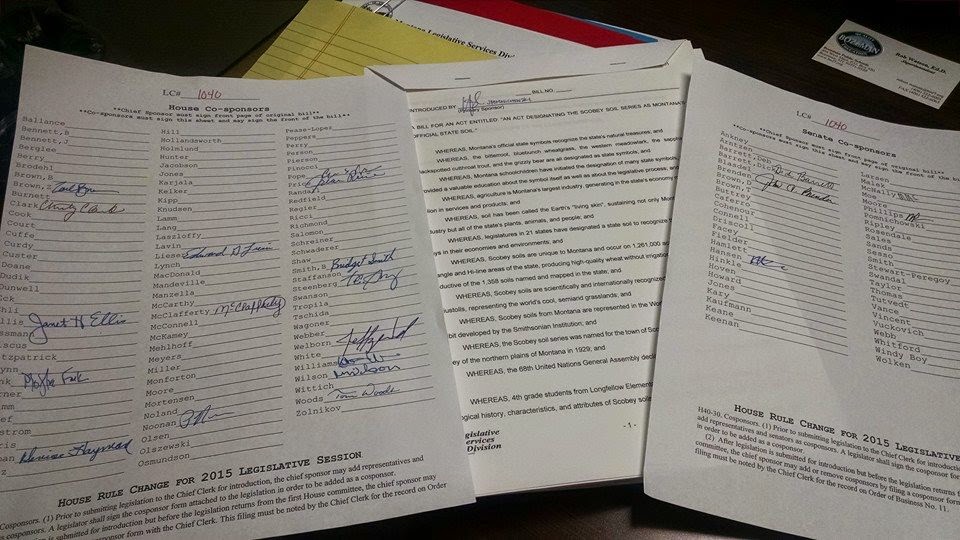 |
|
| 34 co-sponsors of the state soil bill, Democrats and Republicans! |
On January 19, I presented Senate Bill 86 on behalf of the Commissioner of Political Practices and Montanans everywhere, for electronic filing of campaign finance reports. It’d make campaign finance information immediately available and searchable! It’s a good bill…but I found out that it was tabled in committee yesterday (likely dead).
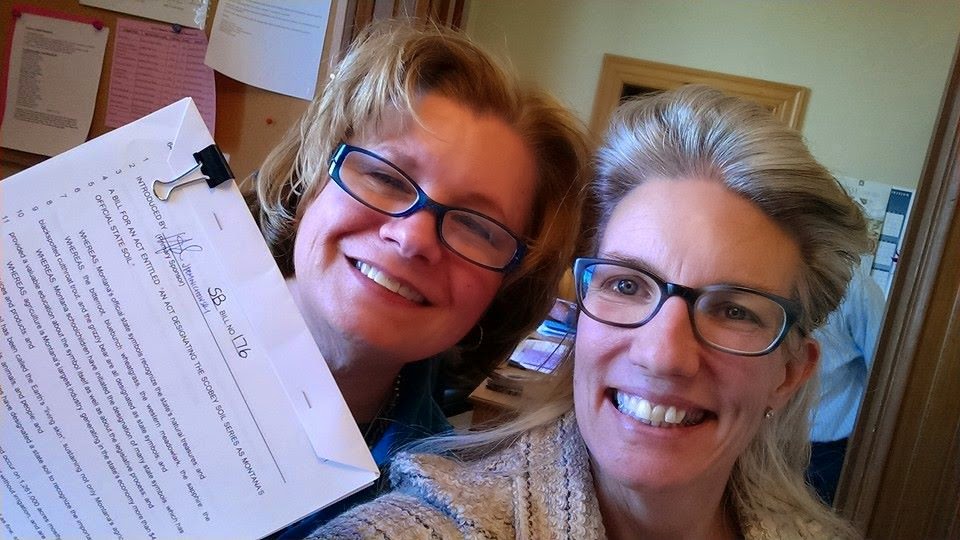 |
|
| Introducing Senate Bill 176, to name a state soil! |
And in the meantime, I introduced Senate Bill 176, to name a new state symbol: a state soil! The fourth-graders at Longfellow Elementary in Bozeman approached me in the early fall last year to carry this bill, and they’re all (52 of ’em) coming to Helena to try to get their bill passed! They’ve studies soils and propose that the Scobey soil series be named the state soil. (The Natural Resources and Conservation Service, a federal agency, has already identified state soils for each state in the nation, and named the Scobey soils as Montana’s. It’s just that we as a state have not memorialized the soil as a state symbol…YET.)
Scobey soils underlie the Golden Triangle in Montana, the most productive non-irrigated farmland that produces high-yield, high-protein wheat, and the soils extend all along the Hi-Line, too. US Senator Tester has written a letter in support of the effort, and so has Dean Folkvord, our very successful local farmer and entrepreneur of Wheat Montana!
In these first three weeks, legislators have held joint sessions to hear addresses from Montana Supreme Court Justice Mike McGrath and US Senator Jon Tester. And I’ve included a few more photos from these first sixteen days of the session.
More to come, everyone, as the session advances. Stay tuned!
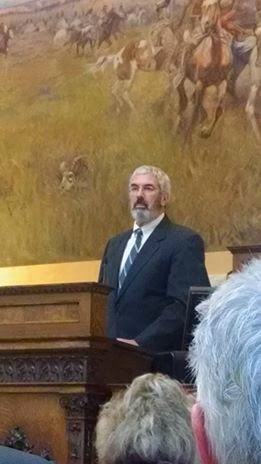 |
|
| Montana Supreme Court Chief Justice Mike McGrath |
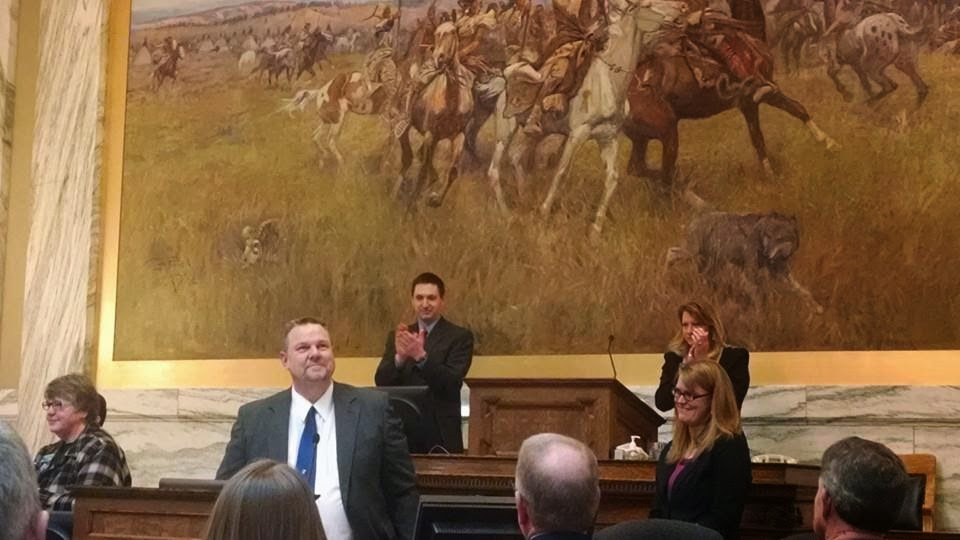 |
|
| U.S. Senator Jon Tester addresses a joint session |
 |
|
| Superintendent of Public Instruction Denise Juneau and me |
 |
|
| My fellow senator from Gallatin Valley, Mike Phillips |
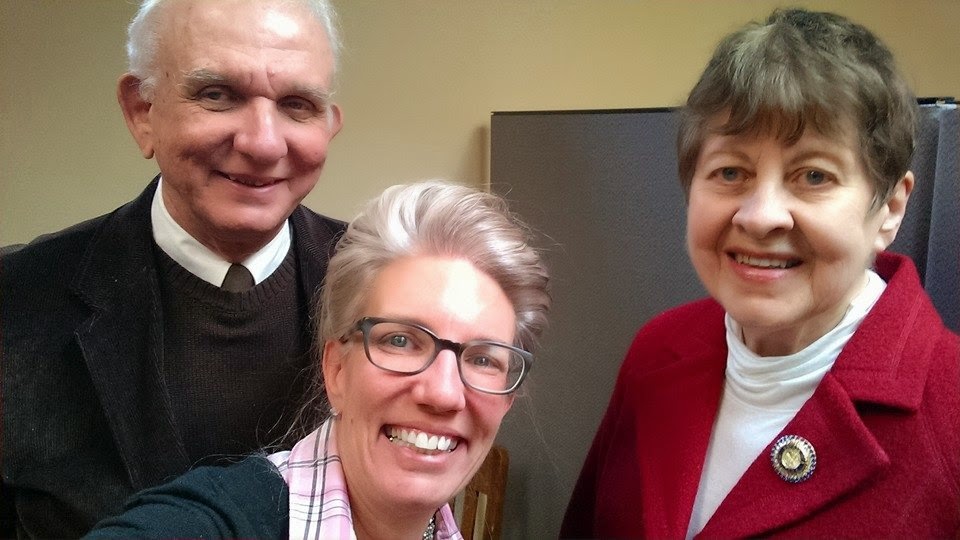 |
|
| My dad, Ralph Pomnichowski, and his wife, Barbara Mittal |
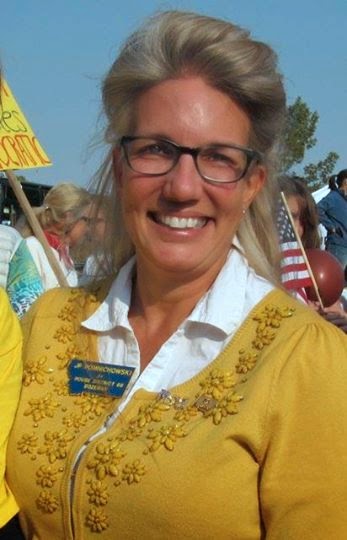
On Tuesday, November 4, in the general election, I won my race for a state senate seat. I am so proud to be elected from Senate District 33 to represent all Montanans in the upcoming 2015 Legislature!
The vote totals were:
JP Pomnichowski, Democrat . . . . 3,899 . . . . 57.79 %
Bryan Rogan, Republican . . . . . . 2,415 . . . . 35.79 %
Joan Stanley, Libertarian . . . . . . . . 433 . . . . . 6.42 %
I love the work of the legislature.
I’ll do my very best to pass good policy for all of us.
Thank you!